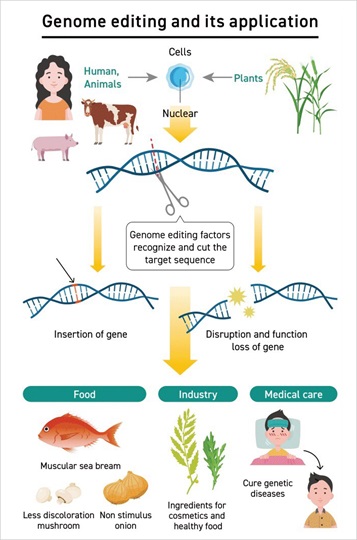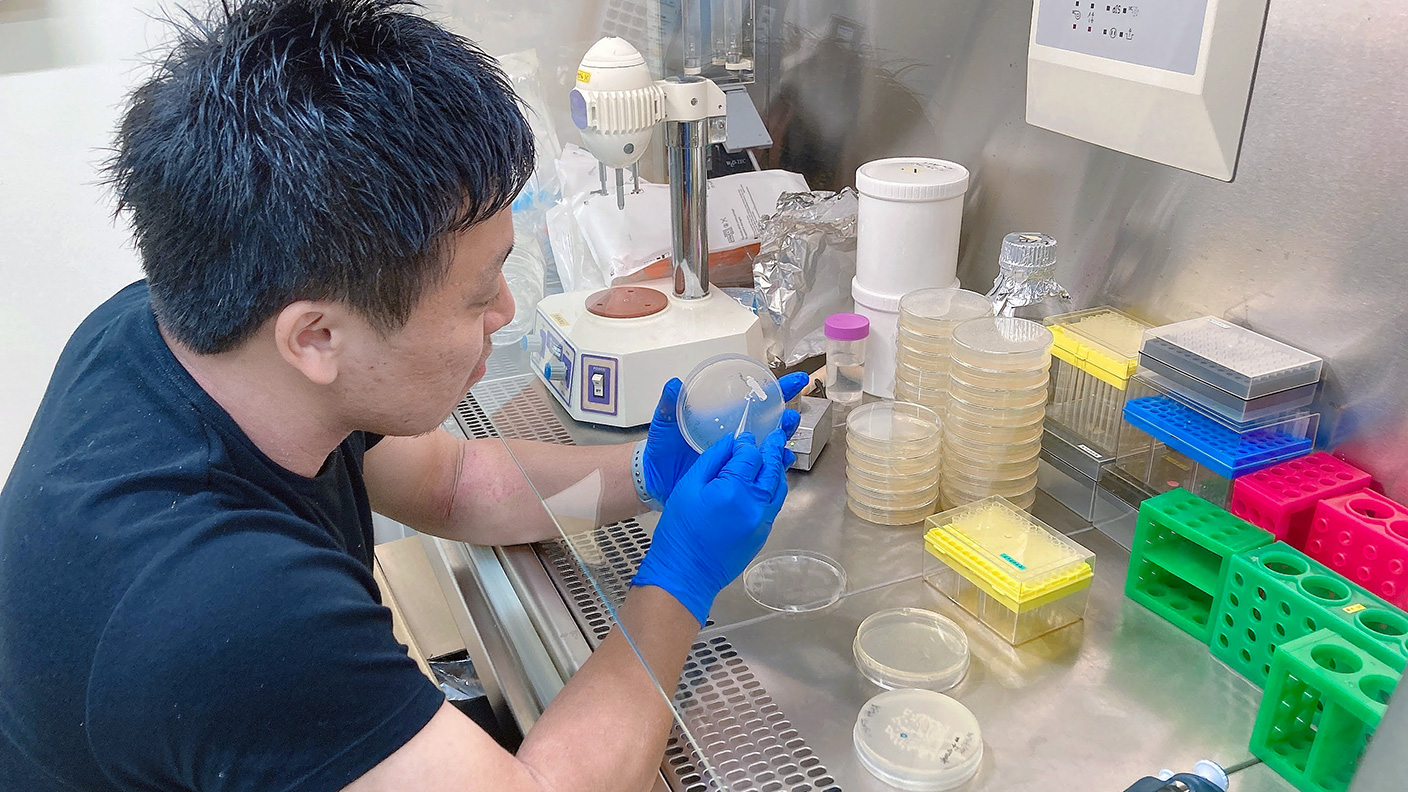Nov. 25, 2022
Capital and Business Alliance with a Genome Editing Startup:Setsuro Tech—Contributing to the Stabilization of Food Production through Safe and Secure Breeding—
Sumitomo Corporation has concluded a capital and business alliance agreement with Setsuro Tech, a start-up company that provides research and development services of genome (*1) editing. Going forward, we will promote the commercialization of the company's products, market development both in Japan and overseas, and the advancement of genome editing technology into society.
A Technology that "Unleashes the Diverse Capabilities of Living Organisms".
The world is facing serious food shortages as a result of rapid population growth, climate change, and conflicts. Genome editing is expected to be a drastic solution to the food problems. Breeding is necessary to make living organisms safer, more secure, and tastier, and most of the vegetables and meat on our tables have been gradually bred over a long period of time, ranging from several thousand to 10,000 years.
Currently, the most commonly used method of breeding organisms is the "selective breeding," in which mutated individuals are selected and then crossbred. However, it requires a long period of time (up to several decades) and a great deal of labor, and even methods such as irradiation and chemical administration are sometimes used to efficiently cause mutations in organisms.
Genome editing, on the other hand, is a revolutionary technology that changes the traits of an organism by editing its genetic information with high precision. Since only specific genes can be edited, only specific functions, such as improvement of sugar content and disease resistance, can be given to an organism in a much shorter period of time (several years) than with conventional methods, making it possible to create safer and tastier varieties. For example, if it were possible to develop a new breed of pig with enhanced disease resistance through genome editing, it would contribute to improving the efficiency of the world's pig farming industry and securing stabler food supplies.
In addition, unlike "genetic modification" (*2), genome editing does not introduce genes from the outside, but rather intentionally causes mutations that can occur in nature, and thus has little impact on the ecosystem.
In this regard, genome editing is seen as a technology that will fundamentally change the breeding of living organisms, and the market scale is expected to grow from $20 billion in 2020 to $58 billion by 2030.

Setsuro Tech keeps on the challenge of making Tokushima the epicenter of the genome editing industry
Founded in 2017, Setsuro Tech is a startup originating from the University of Tokushima. Based on the genome editing technology and know-how developed at the university, the company is engaged in a wide range of businesses, including research support for academia and companies, development and sales of genome-edited animals, and development of new highly value-added breeds. Furthermore, the company has developed its own genome editing factor "ST8" to replace Cas9 protein (*4), which is currently the most widely used one (*3), and is conducting research and development to speed up breeding in the medical field as well as the agricultural and livestock breeding fields.
Contributing to Solving the Food problem through Genome Editing
In April this year, Sumitomo Corporation launched a new organization to develop innovative businesses in the field of agriculture and livestock production, with the themes of Smart Farming (agricultural DX and precise farming), Clean Farming (low environmental impact agriculture), and the establishment of next-generation food production. Under this alliance, we will promote the development and sales of new breed by utilizing the technology developed by Setsuro Tech in collaboration with internal and external business partners of ours, as well as support the overseas development of "ST8," the company's proprietary genome editing factor. Through this investment in Setsuro Tech, we will also accumulate knowledge in the field of genome editing and develop safe and efficient meat, seeds, and crops, thereby contributing to the stability of food production and improvement of living standards on a global scale.

- Genome: All the genetic information in the DNA of an organism.
- Genetic Modification: A technology that introduces a specific gene from one organism into another, enabling the creation of a variety with useful traits that cannot be produced by inbreeding within the same species. Breeds created by genetic modification technology must be evaluated for their impact on human health and biodiversity.
- Genome Editing Factors: A substance necessary for genome editing technology; a complex of "guide RNA" that acts as a "guide" that can bind to DNA and proteins that act as "scissors" to cut DNA.
- Cas9 Protein: An enzyme (protein) that cuts DNA and is one of the genome editing factors that make up CRISPR/Cas9, a third-generation genome editing technology. Emmanuelle Charpentier and Jennifer Doudna, who published CRISPR/Cas9, were awarded the Nobel Prize in Chemistry in 2020.
■Outline of Setsuro Tech
| Representative: | Shinichiro Takezawa |
| Address: | Fujii Setsuro Memorial Medical Science Center, 3-18-15 Kuramoto-cho, Tokushima City, Tokushima Prefecture |
| Establishment: | 2017 |
| Main Business: | Research support services and commercialization of new varieties of genome editing |



